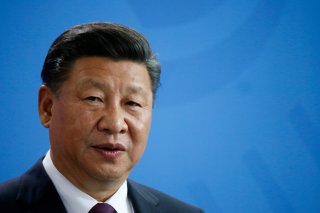U.S.-China Summit: Did Joe Biden Get Anything from Xi?
There was far less to the Biden-Xi APEC meeting than either man was willing to acknowledge.
President Joe Biden was, in that quaint British expression, “cock-a-hoop” over what he considered a successful summit meeting with China’s Xi Jinping. Biden claimed that the two men had made “real progress” in their discussions. He highlighted various agreements that he had reached with his Chinese counterpart, notably a restoration of contacts between the two nations’ militaries and Xi’s apparent readiness to curb the export of precursor chemicals for the killer drug fentanyl. The two delegations also agreed to establish a dialogue on artificial intelligence to expand exchanges in education, business, and culture and increase the number of flights between their countries. Biden also sought to demonstrate his toughness by labeling his counterpart a dictator.
Biden may have been basking in the afterglow of the meeting, but it is unclear how much he actually accomplished. Xi did not give way at all on the Taiwan issue, nor did he indicate that China would cut back on its aggressive behavior in the East and South China Seas. Nor did he pledge to lessen his material support for Vladimir Putin’s invasion of Ukraine.
The administration emphasized the importance of renewing high-level military-to-military communications. Yet, it is noteworthy China did not honor a similar agreement that then-Chairman of the Joint Chiefs of Staff General Joe Dunford and his counterpart General Fang Fenghui reached in August 2017 to “improve communication between their militaries and reduce chances of miscalculations.” Indeed, it was hardly more than a year later that a Chinese destroyer overtook the U.S. Navy destroyer Decatur and forced it to turn starboard to avoid a collision with the oncoming ship. Even if military contacts are renewed at levels similar to those of 2017, there is no guarantee that China will stop its harassment of American ships and planes conducting freedom of navigation operations in the South China Sea, which Beijing continues to claim are its territorial waters.
China’s promises to impose curbs on fentanyl precursors may prove similarly meaningless. After all, as Biden himself pointed out after his meeting with Xi, Beijing had reached an agreement with Washington, effective May 1, 2019, to reduce the amount of fentanyl that it shipped directly to the United States. But as he also acknowledged, “in the years since that time, the challenge has evolved from finished fentanyl to fentanyl chemical ingredients and…pill presses, which are being shipped without controls.” Surely, the Chinese knew that, in effect, they were implementing a workaround to the 2019 agreement. There is no reason to believe they might not find another workaround to this latest understanding between the two leaders.
Many observers have noted that his country’s economic slowdown compelled Xi to ratchet down tensions with the United States and seek some degree of accommodation with Washington to encourage more investment in China. After all, China’s predicted growth rate of 5 percent is more of a wish than a reality. It is, at best, more likely to reach 4.5 percent. Both figures are a far cry from the double-digit growth that China enjoyed for many years. Thus, American investment would significantly contribute to China’s economic expansion. To that end, Xi met with American business leaders, radiating what could only be described as a charm offensive.
Charming or not, however, Xi is unlikely to spur more investment in China. Indeed, the process of American disinvestment continues apace. More and more firms are choosing to expand their East Asian presence; they are building plants in Vietnam, Thailand, Malaysia, and the Philippines. These firms worry that despite the thaw that Biden and Xi seemingly have engendered, it is not at all clear that Xi’s movement away from the economics of Deng Xiaoping and his emphasis on state-owned enterprises will sustain what previously was a healthy climate for corporate American investment. Moreover, should Donald Trump return to office, America might find itself in a trade war that could result in Beijing forcing American firms to sell their facilities at fire sale prices. It is also noteworthy that Chinese firms are themselves building plants in Southeast Asia, perhaps seeking to sidestep a trade war that a second Trump presidency could well initiate.
In his own remarks, Xi Jinping insisted that China wishes to “coexist peacefully” with the United States. Like his other commitments, his pronouncement about “peaceful co-existence” should be taken with more than a grain of salt. After all, during the 1950s, Nikita Khrushchev repeatedly employed the term—first articulated in 1917 by Leon Trotsky, the Bolshevik Commissar for Foreign Affairs. Khrushchev even published an article in Foreign Affairs entitled “Peaceful Co-existence.”
That article appeared in 1959. Three years later, this seeming apostle of peaceful co-existence instigated the Cuban Missile Crisis that nearly sparked a nuclear conflict with the United States. It is a lesson that those who deal with Xi Jin Ping should be careful not to forget.
Dov S. Zakheim is Vice Chairman of the Foreign Policy Research Institute, a Senior Advisor at the Center for Strategic and International Studies, and a member of The National Interest Advisory Board. He is a former Under Secretary of Defense and Deputy Under Secretary of Defense.
Image: Shuterstock.com.


